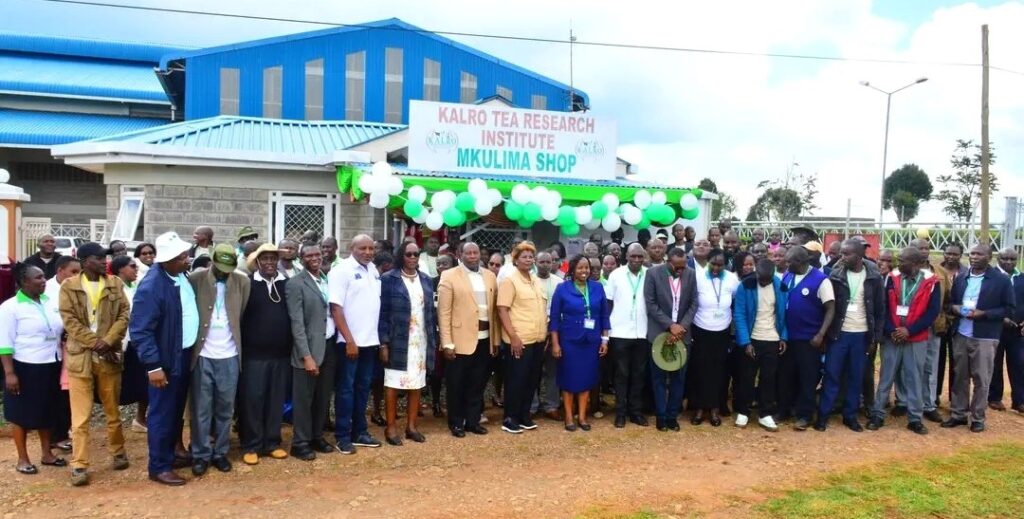The Kenya Agricultural and Livestock Research Organization (KALRO) has officially opened its 15th Mkulima Shop in Kericho, a move that underscores the organization’s ongoing commitment to enhancing farmer access to quality agricultural inputs and innovations. The launch coincided with International Tea Day, celebrated under the global theme “Harnessing Climate-Resilient Practices in Tea Production.”
The new Mkulima Shop, operated through KALRO’s Tea Research Institute (TRI), is strategically located to serve the needs of smallholder farmers in the region. The shop functions as a one-stop center where farmers can obtain certified seeds, seedlings, and other environmentally sustainable technologies designed to boost productivity and adapt to changing climatic conditions.
As part of its broader strategy, KALRO is decentralizing access to its research-based solutions, ensuring they are more readily available at the grassroots level. The Kericho outlet joins a growing network of Mkulima Shops across 15 counties, each tailored to meet the specific agricultural needs of their respective regions.
During the opening ceremony, KALRO leadership emphasized the role of the shops in bridging the gap between agricultural research and practical application. The availability of certified inputs and up-to-date technologies directly within farmers’ reach is expected to accelerate the adoption of innovative practices, especially those geared towards climate resilience.
Looking ahead, KALRO plans to roll out a digital platform later in the year to further expand farmer access to agricultural products and services. This platform will serve as a virtual extension of the Mkulima Shops, offering farmers a convenient way to obtain farm inputs, receive technical assistance, and connect with markets.
This digital expansion aligns with KALRO’s ongoing efforts to modernize agricultural service delivery in Kenya. By integrating physical and digital access points, the organization hopes to enhance the effectiveness and reach of its support to farmers, particularly in remote areas.
As part of the celebrations, guests toured the TRI Cottage Factory and participated in a tree-planting exercise, symbolizing the importance of environmental stewardship. Live demonstrations showcased TRI’s latest innovations, including natural pest control techniques and custom fertilizer formulations designed to enhance soil health and crop yields.
These innovations reflect a shift towards more sustainable agricultural practices, emphasizing the need for inputs and technologies that align with environmental conservation and long-term farm productivity. The Mkulima Shops are thus positioned not just as retail centers but as hubs for knowledge transfer and sustainable development.
In addition to supplying inputs, the Tea Research Institute is promoting value addition in tea production. Farmers and entrepreneurs are being encouraged to diversify into high-value products such as purple tea, kombucha, fortified teas, and non-edible items like tea-based cosmetics and cleaning products. This approach aims to increase farmer incomes while boosting Kenya’s competitiveness in global tea markets.
The Kericho shop’s launch reinforces KALRO’s mission to bring innovation “from lab to land.” By making certified seeds, seedlings, and climate-smart technologies more accessible, KALRO is helping smallholder farmers build resilience, enhance productivity, and explore new economic opportunities through value-added products. With both physical and digital platforms in development, the future of Kenyan agriculture is poised for significant transformation.

